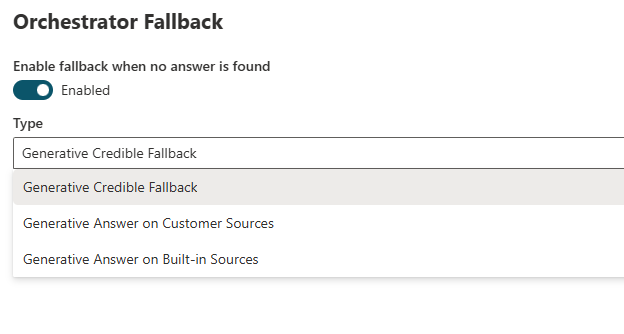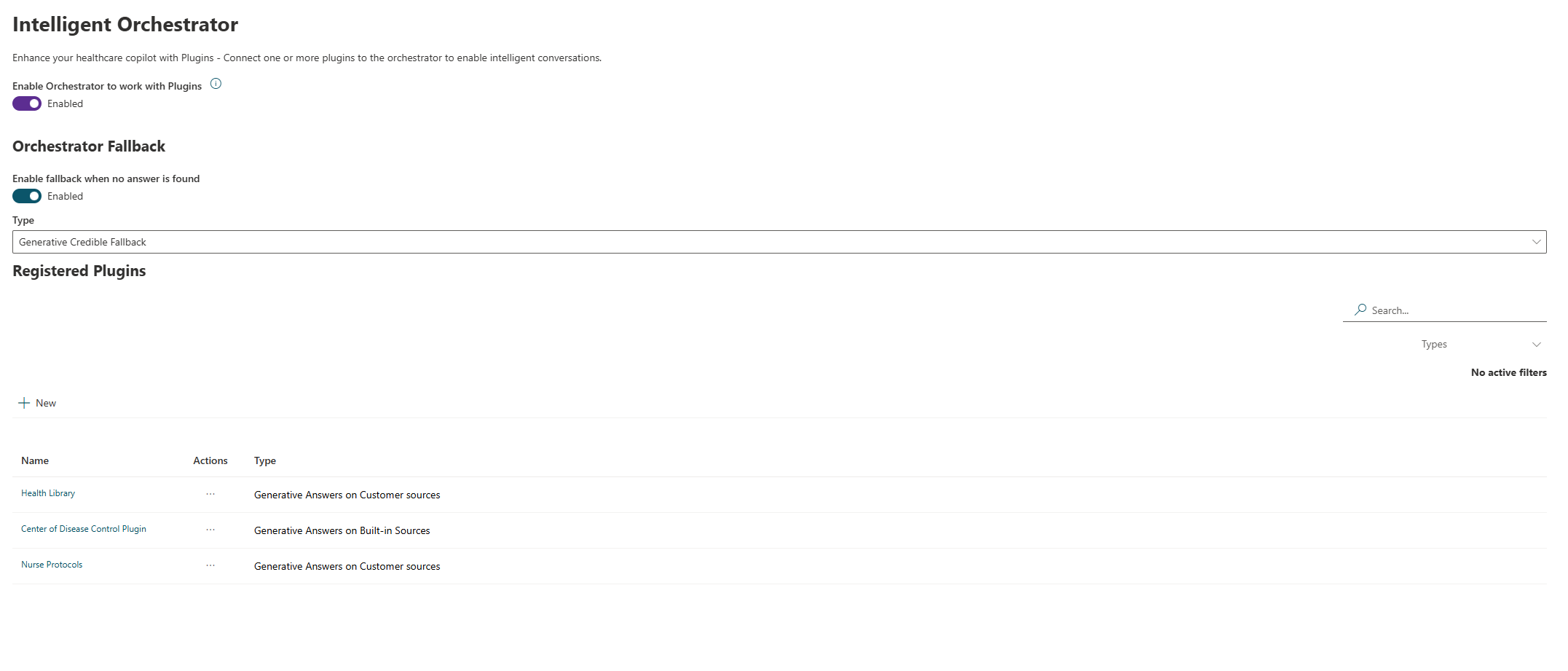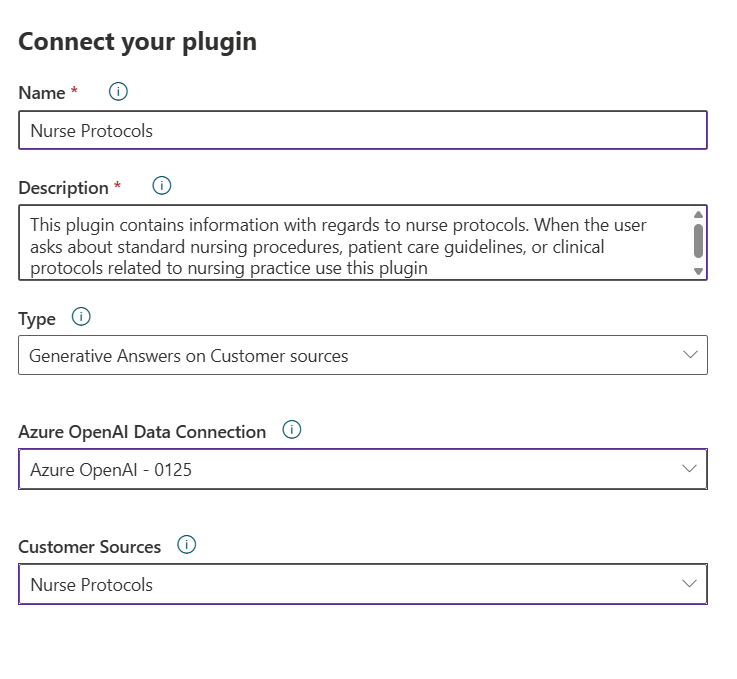Healthcare Orchestrator
Important
This feature is currently in Public Preview
The healthcare agent service enables you to leverage a Generative AI healthcare-adapted orchestrator to identify the appropriate plugin for user queries. When the orchestrator is activated, it processes all incoming messages. This orchestrator analyzes the user’s question, along with the interaction history and available plugins, to determine the best course of action and activate the necessary plugin.
The orchestrator is triggered as the final step in the language model sequence, activating only when no other intent is identified. Upon enabling the orchestrator, the built-in Language Models for Medical Information Requests and Drugs and Medications are disabled to prevent conflicts with the orchestrator. However, the default built-in regex support actions, such as help, terms, and greetings, remain enabled. You can choose to disable these and create custom plugins for them if desired.
Important
Every answer generated by the orchestrator will be protected through our Health Safeguards.
Register Plugins
The healthcare orchestrator page allows you to register one or more plugins to the orchestrator to enhance its ability to respond to end-user queries. Each plugin must have a clear and concise description of its functionality. The orchestrator will activate a plugin based on its description, ensuring that the most relevant plugin is used for each query. For the built-in sources we provide valdiated plugin descriptions.
You can utilize multiple plugins of the same type within your bot instance. The currently supported plugin types are as follows:
- Generative Answers on Customer Sources: This feature enables the creation of a plugin using your own data sources. It can be configured to interact with your data through Azure AI Search or via Bing Custom Search on your website. Customers sources are registered via the Data connections page.
- Generative Answers on Built-in Sources: This feature leverages existing healthcare Built-in Sources, including sources such as US National Library of Medicine, The Centers for Disease Control and Prevention or The U.S. Food and Drug Administration. These are all part of the Healthcare Intelligence feature.
- OpenAPI Plugins: This feature allows you to integrate custom plugins using an OpenAPI manifest. For more information, you can navigate to the OpenAPI Plugin page.
- Conversational Plugin: This feature enables the usage of an healthcare agent service Scenario as a plugin. It allows for the creation of complex scenarios, packaging them as plugins that the orchestrator can activate based on their descriptions.
To register a new plugin, select the + New button. Depending on the plugin type, you will need to either provide an Azure OpenAI Connection, specify your data source (website/data), built-in source or select the scenario you wish to activate.
Plugin Name and Descipription
A clear Name (max length 31 characters) and Description (max length 600 characters) are essential for the orchestrator to trigger the right plugin when an user asks a question. The image below shows an example of a clear Name and Description when adding a Customer Source with Nurse Protocol information.
Orchestrator Fallback
The orchestrator contains support for Fallback. Fallack is a feature that is triggered when the orchestrator did not find any relevant plugin to answer the end-user question, or when the selected plugin did not find the needed information to answer the question. As a customer you can decide if you want to fallback to one of our sources, or to one of your sources.

Currently we support the following fallback mechanisms:
- Generative Credible Fallback: Fallback to information that has been grounded on a set of reliable sources designed to provide trustworthy healthcare answers.
- Generative Answers on Customer Sources: Fallback to your own data sources. This can be configured to interact with your data through Azure AI Search or via Bing Custom Search.
- Generative Answers on Built-in Sources: Fallback to credible healthcare Built-in Sources, including US National Library of Medicine, The Centers for Disease Control and Prevention or The U.S. Food and Drug Administration.


